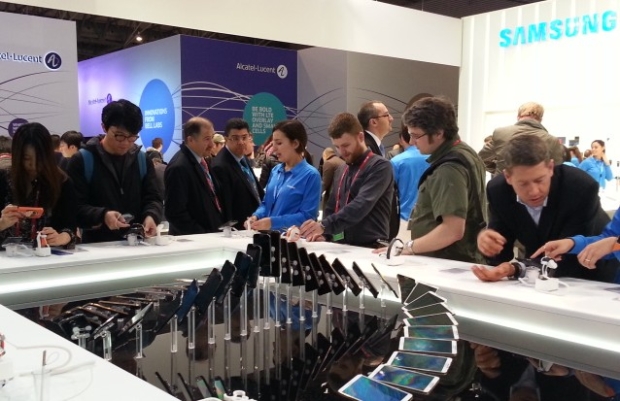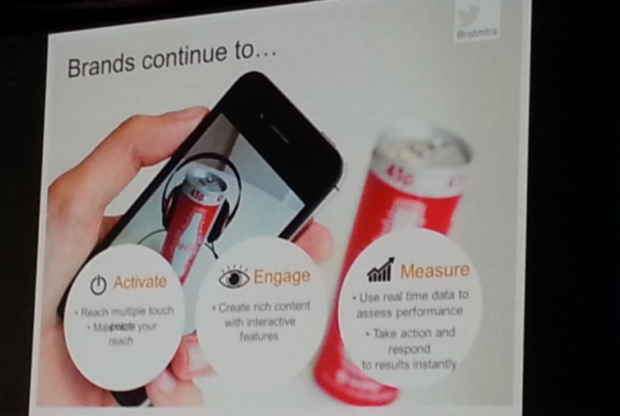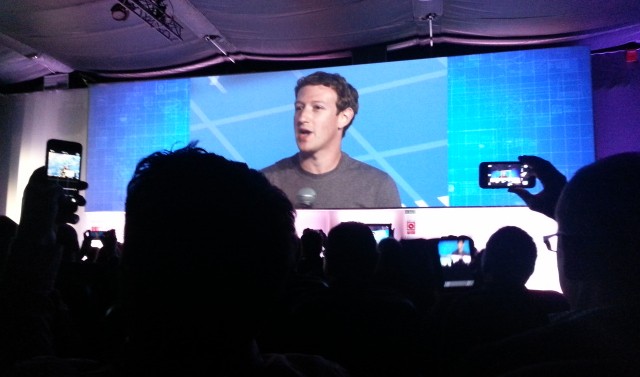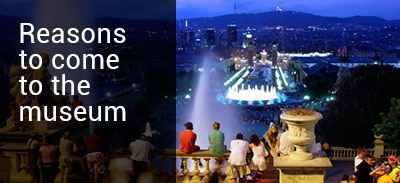Conxa Rodà

A major success in terms of attendance, spectacular new devices, either tablets, mobiles or wearables, quite another world that seems a long way from the museums. But not so far if we think that what can now have futuristic tinges, with a vertiginous evolution of the technology and of the social practices, could be of common use in no time. In the website of the Mobile you can find summaries and videos of the highlights of this edition of 2014.
Beyond the exhibition itself, the talks given were even more interesting. Even though the concepts and ideas put forward were from a company or business point of view, they can be extrapolated to museums, and the culture sector, in general. Here I list some of the most frequently commented concepts and trends discussed in the congress:
■ partnership: from competition to collaboration
■ understanding the diversity of the audiences and the global markets
■ experience of the user
■ a new currency: the insight of the user
■ the second screen: simultaneous use of various screens at home (changes in cultural consumption)
■ listening to the customers/users and placing them at the centre
■ simplification
■ culture of innovation within organisations
■ the data, key factor
Content of quality and free
The importance of the content, of quality and free of charge, was an aspect repeatedly highlighted in the different talks. And if the operators and manufacturers have the key of the technology, where do we find the content that give them sense? We, the cultural sector, the museums are key, we are clearly generators of content, this is our asset in the new digital setting. From here I launch a call for mCulture (or mMuseums) to be soon included in the MWC, in the same way as mSchool or mHealth already exist. We still need to make our own space for ourselves. This year, boosted by the fact that Barcelona is Mobile World Capital, there was an informal meeting on its stand in which some museums and libraries coincided. Sparks of motivation and ideas to do things emerged. We’re ready to go, it’s just a question of getting things moving so that new projects come to light.

What the major brands do we should also do in the museums: to activate multiple points of contact, attract and measure.
The user, at the centre
You’ll have noticed that various points in the list refer to the customer, the user. I found the position of one of the speakers from a company particularly relevant, who said textually: «We shouldn’t focus on getting more customers, our vision should be how we can provide a better service to the customers. The customers’ experience must be the priority. » From the museums, we are working on making the visit an experience of quality. And mobile technology helps us facilitating that visitors explore, interpret, and share what captures their attention.
Another interesting concept that was formulated was the «sense of positive urgency», because it is true that we cannot allow ourselves to sleep, the technology and the users are going very fast, the museums have to act accordingly.
Do we have the websites adapted to mobile?

The crowded talk of Mark Zuckerberg in the MWC Barcelona. Photo: Conxa Rodà.
According to recent statistics, 85% of mobile users connect to Internet from their devices. How are our websites prepared for that intensive mobile use? Can they be seen well on a small screen? Or is it necessary to scroll in all directions and make the user dizzy to be able to access the content? If we don’t have many resources, it would surely be better, before getting stuck into the production of apps, to ensure that our website is optimised for mobile devices, and this doesn’t only mean readjusting the size to any screen or resizing the images so that they ‘weigh’ less, but also rethinking an architecture of the information which is also adapted, relevant and contextual. The new websites should be developed with responsive design. And those that we already have underway, to work on an optimum mobile version. This, nowadays, should be a priority of our mobile strategy.
And what are we doing on mobile in our museum? Most relevant thing has been the planning of our new website, just recently revamped, having in mind the mobile dimension from the very beginning and developing it under responsive design. This mobile version will be available shortly. Plus we have explored the app waters with two initiatives, the development for tablets for the exhibition The Museum Explores and an app for the exhibition Tàpies from Within. Another line of action has been the collaboration as a pilot project for a new social app that allows users to create and share itineraries for visiting museums, Unique Visitors, which will be presented in MuseumNext Conference in June.
I don’t want to finish without mentioning some of the museums of the world that are advancing their mobile strategy in an exemplary way: MoMA, Smithsonian, Tate, the Rijksmuseum and some notes I wrote some time ago, The museums are going mobile. In the related links below there are good references of cases from our country and from abroad.
Do you know other good examples of mobile websites or museum apps that you want to share? Please, leave a comment!
Related links:
Making visitor information easier for mobile phone users
Co-directora del Curs d'Estratègia Digital_UOC_Museu Nacional d'Art de Catalunya
Co-directora del congrés CIMED de Museos y Estrategias Digitales







